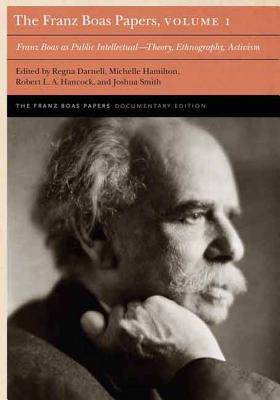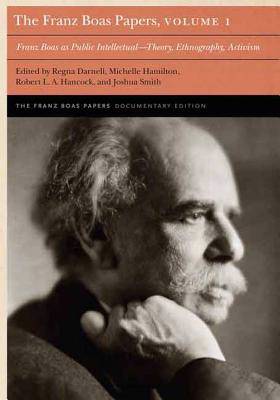
Bedankt voor het vertrouwen het afgelopen jaar! Om jou te bedanken bieden we GRATIS verzending (in België) aan op alles gedurende de hele maand januari.
- Afhalen na 1 uur in een winkel met voorraad
- In januari gratis thuislevering in België
- Ruim aanbod met 7 miljoen producten
Bedankt voor het vertrouwen het afgelopen jaar! Om jou te bedanken bieden we GRATIS verzending (in België) aan op alles gedurende de hele maand januari.
- Afhalen na 1 uur in een winkel met voorraad
- In januari gratis thuislevering in België
- Ruim aanbod met 7 miljoen producten
Zoeken
The Franz Boas Papers, Volume 1
Franz Boas as Public Intellectual--Theory, Ethnography, Activism
€ 93,95
+ 187 punten
Omschrijving
This inaugural volume of The Franz Boas Papers Documentary Edition series presents current scholarship from the various academic disciplines that were shaped and continue to be influenced by Franz Boas (1858-1942). Few of Boas's intellectual progeny span the range of his disciplinary and public engagements. In his later career, Boas moved beyond Native American studies to become a public intellectual and advocate for social justice, particularly with reference to racism against African Americans and Jews and discrimination against women in science. He was a passionate defender of academic freedom, rigorous scholarship, and anthropology as a humane calling.
The Franz Boas Papers, Volume 1 examines Boas's stature as a public intellectual in three crucial dimensions: theory, ethnography, and activism. The volume's contributors move across many of the disciplines within which Boas himself worked, bringing to bear their expertise in Native studies, anthropology, history, linguistics, folklore, ethnomusicology, museum studies, comparative literature, English, film studies, philosophy, and journalism. This volume demonstrates a contemporary urgency to reassessing Boas both within the field of anthropology and beyond.
The Franz Boas Papers, Volume 1 examines Boas's stature as a public intellectual in three crucial dimensions: theory, ethnography, and activism. The volume's contributors move across many of the disciplines within which Boas himself worked, bringing to bear their expertise in Native studies, anthropology, history, linguistics, folklore, ethnomusicology, museum studies, comparative literature, English, film studies, philosophy, and journalism. This volume demonstrates a contemporary urgency to reassessing Boas both within the field of anthropology and beyond.
Specificaties
Betrokkenen
- Uitgeverij:
Inhoud
- Aantal bladzijden:
- 408
- Taal:
- Engels
- Reeks:
Eigenschappen
- Productcode (EAN):
- 9780803269842
- Verschijningsdatum:
- 1/08/2015
- Uitvoering:
- Hardcover
- Formaat:
- Genaaid
- Afmetingen:
- 182 mm x 262 mm
- Gewicht:
- 929 g

Alleen bij Standaard Boekhandel
+ 187 punten op je klantenkaart van Standaard Boekhandel
Beoordelingen
We publiceren alleen reviews die voldoen aan de voorwaarden voor reviews. Bekijk onze voorwaarden voor reviews.








